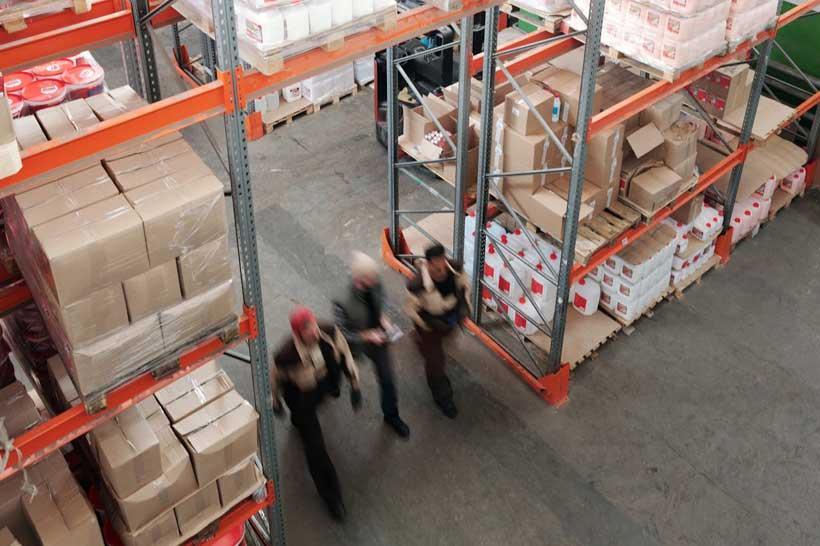By
Gule Zahra
Africa-Press – Eritrea. Global supply chains act as the circulatory system of the modern world economy, which is intricately linked and deeply interconnected. Different stages of production are located in different countries, allowing firms to specialize and reduce costs. In recent years, there has been a noticeable trend of supply chain realignment around the globe. There has been strategic restructuring of sourcing, manufacturing, and distribution networks by companies and states, characterized by ‘reshoring,’ ‘nearshoring,’ and ‘friendshoring.’ This reconfiguration is not just about optimizing costs and efficiency; rather, it is driven by a confluence of geopolitical factors. Decisions are no longer just about where things are cheapest to make; they are about where it is safe and strategically sound to produce.
The transformation in the global supply chain landscape is driven, in large part, by intensifying geopolitical rivalries. States are securing supply chains within the orbit of allies and far away from adversaries. For instance, the European Union, wary of both U.S. and Chinese dependency, is pursuing strategic autonomy. It is pouring money into domestic and allied supply chains in sectors such as defense manufacturing, semiconductors, and renewable energy that are critical to national security. Viewing overdependence on foreign supplies of key minerals as a national security risk, the EU has imposed a cap requiring no more than 65% of any strategic raw material to come from a single non-EU country. Moreover, the EU is increasingly investing in rare-earth processing in states such as Finland with the goal of reducing Chinese dependence. Another driver behind the reconfiguration of supply chains is economic coercion. Economic sanctions are being used to punish and isolate rival states. As a consequence, companies are restructuring supply chains to avoid being sanctioned. For instance, in April 2025, the U.S. Treasury Department put sanctions on Chinese companies accused of being part of an Iranian procurement network. This led to the companies altering their sourcing strategies. Then there is the politics of homecoming: from Washington to Rome, populist leaders are appealing to voters with a simple promise: “We will bring jobs back home.” States are using strong incentives to make that happen. The Italian government, for instance, is giving tax incentives to companies for relocating production to Italian soil.
The consequences of this realignment could reshape the global economy for decades to come. A crucial question that emerges is who might benefit from these shifts and who might be excluded. It remains to be seen how the Global South might fare in this reconfigured economic order. For years, these states have been told that integration into global supply chains is their path to prosperity. However, in reality they have been stuck in the lower rungs of the global economic ladder. They have been relegated to the export of raw materials and the assembling and packaging of goods. This limited role has prevented these nations from diversifying into high-value sectors.Now, as production is being shifted to nearby or politically aligned countries, many states in the Global South face the prospect of deeper exclusion from the supply chains that they once hoped would drive their development.
Firstly, nearshoring may marginalize states that do not have geographical proximity to core states. According to the IMF, the reduction in foreign direct investment due to ‘near-shoring’ could lead to losses of up to 12% of GDP for some developing countries. Second, a significant portion of nearshoring investments in the Global South countries have been in low- to mid-tech and labor-intensive sectors such as garment production, electronics assembly, and medical device packaging. These investments often result in limited value addition. For instance, Vietnam and Malaysia have attracted investments by electronic firms, but the emphasis is on assembling and packaging electronic products. Third, the impact of nearshoring foreign direct investments has been limited when it comes to improvement of wages. According to the World Bank, wage growth in Latin America and the Caribbean remains slow, reflecting the region’s low overall economic growth rates. Last, in many nearshoring destinations, the benefits are concentrated in industrial hubs and export processing zones. For instance, in Mexico, the majority of foreign direct investments are concentrated in the northern states. This concentration can undermine inclusive development and lead to regional disparities.
Rather than simply ‘plugging into’ reconfigured supply chains on terms dictated by others, the states in the Global South need to craft resilient economic strategies. Shifting away from being passive recipients of foreign capital, these states need to build autonomous capacity and increase their leverage. For this, the states should incentivize companies to pursue backward and forward integration. Backward integration means a company gains control over the raw materials or components used in its products, whereas forward integration refers to a company gaining control over the distribution and sale of its products. For this, states should identify priority sectors with domestic potential and offer targeted incentives such as tax breaks, low-interest loans, and public research and development grants for local companies. Moreover, to avoid the creation of enclave economies, governments must ensure that foreign investors integrate into the domestic economy. This can be done through requiring foreign companies to partner with local companies, invest in local research and development, invest in training programs, etc. Furthermore, Global South economies should expand the range of export destinations beyond a narrow set of countries to reduce the risk associated with overreliance on specific markets. In addition, depending heavily on a narrow range of exports makes states highly vulnerable to price shocks and demand fluctuations. Therefore, states in the Global South should expand the variety of goods they export. Hence, rather than being mere assembly stations for other countries’ industries, states in the Global South need to build resilient domestic economic ecosystems.
moderndiplomacy
For More News And Analysis About Eritrea Follow Africa-Press







